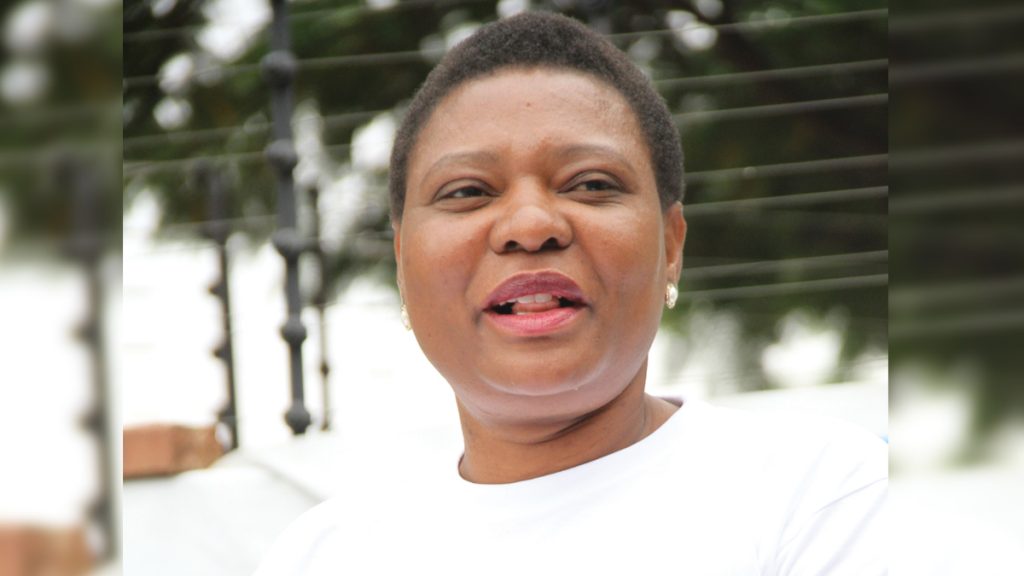CALISTUS BOSALETSWE
There are fears that a decision by Botswana Government to restrict Zimbabwean refugees identifying themselves as members of the LGBTQ+ in Dukwi refugee camp is exposing them to stigma and discrimination.
Zimbabwe is one of the countries in southern Africa that criminalize LGBTQ people forcing them to flee their country as they fear persecution. A human rights organization, Botswana Network on Ethics, Law and HIV/AIDS (BONELA) has likened Botswana’s decision to restrict movement of LGBTQ+ refugees identifying themselves as refugees as rendering them prisoners. “We need to look at our refugee act and policies. If we are offering them further protection they should not be held in camps. We are subjecting them to further stigma and discrimination,” said Cindy Kelemi, a Director at BONELA.
Kelemi said refugees at the camp are from all walks of life who can discriminate them based on their culture, beliefs and traditions. Granting protection to Zimbabwean refugees identifying themselves as LGBTQ people is not peculiar to Botswana as LGBTQ people flee countries that persecute them around the world.
In their latest Human Rights Report, the American Embassy said Botswana government granted 10 persons from Zimbabwe identifying themselves as LGBTQ+ further protection when the country took a decision that Zimbabwean refugees no longer need international protection. Kelemi is of the view that if Botswana is offering them protection they should be completely kept out of places where their rights are violated.
“We can’t say the Dukwi Refugee camp is safe for them. The camp has no requisite infrastructure that can afford them privacy. The refugees share bathrooms and people identifying themselves as LGBTQ might not be comfortable in sharing the space since we don’t know if they are gay, lesbians or intersex,” said Kelemi, noting that the sexual reproductive rights of refugees are also limited.
Kelemi is of the view that Botswana has not done enough to protect refugees identifying themselves as LGBTQ who are fleeing persecution and abuse from their countries. “Our refugee policies and programs are not good at all. The policies do not put the rights of refugees at the centre. We only provide shelter to refugees and fail to protect their rights,” said Kelemi, insisting that Botswana should conform to international obligations to protect their right.
Meanwhile, Kelemi is worried that there are cases where refugees takes years to be accorded refugees status. “During this time refugees are kept at Francistown Centre for Illegal Immigrant. These are people with lives. The reluctance of government in affording refugees status to asylum seekers is appalling,” she said, indicating that the refugees are also right holders who should be accorded those rights in dignified manner.
Data shows that LGBTQ people around the world flee countries that criminalize LGBTQ to seek protection in countries that have decriminalized LGBTQ. Zimbabwe nationals and others from ten African countries are among 308 LGBTQ asylum seekers in data set titled “Data for: Minority Stress, Social Integration, and the Mental Health Needs of LGBTQ Asylum Seekers in North America,”.
Data shows that LGBTQ refugees comes from African that criminalize LGBTQ. A UNHCR report titled, “Protecting persons with diverse sexual orientations and gender identities,” has pointed out that legislative hostility toward LGBTI persons is most concentrated in Africa and Asian-Pacific. The report state that asylum-seekers and refugees with a diverse sexual orientation or gender identity (SOGI), such as lesbian, gay, bisexual, transgender, and intersex (LGBTI) individuals, face distinct vulnerabilities.
“In addition to severe discrimination and violence in their countries of origin – including sexual abuse, lack of police protection, exclusion from access to basic services, arbitrary detention, and social and familial ostracism and exclusion – LGBTI asylum-seekers and refugees are frequently subject to continued harm while in forced displacement,” state the report.
It also stated that while they are in a country of asylum, these harms may include violence and harassment by members of the asylum-seeker and refugee community. The report also noted that insensitive and inappropriate questioning at various stages of the refugee status determination (RSD) procedure may expose them to further harm.
It also stated that there are instances where there is intolerance, harassment, and violence by State and non-State agents in countries of first asylum, undermining the possibility of local integration as a durable solution.
Botswana High Court issued a ground-breaking judgment which decriminalized same-sex sexual conduct between consenting adult in 2019.
